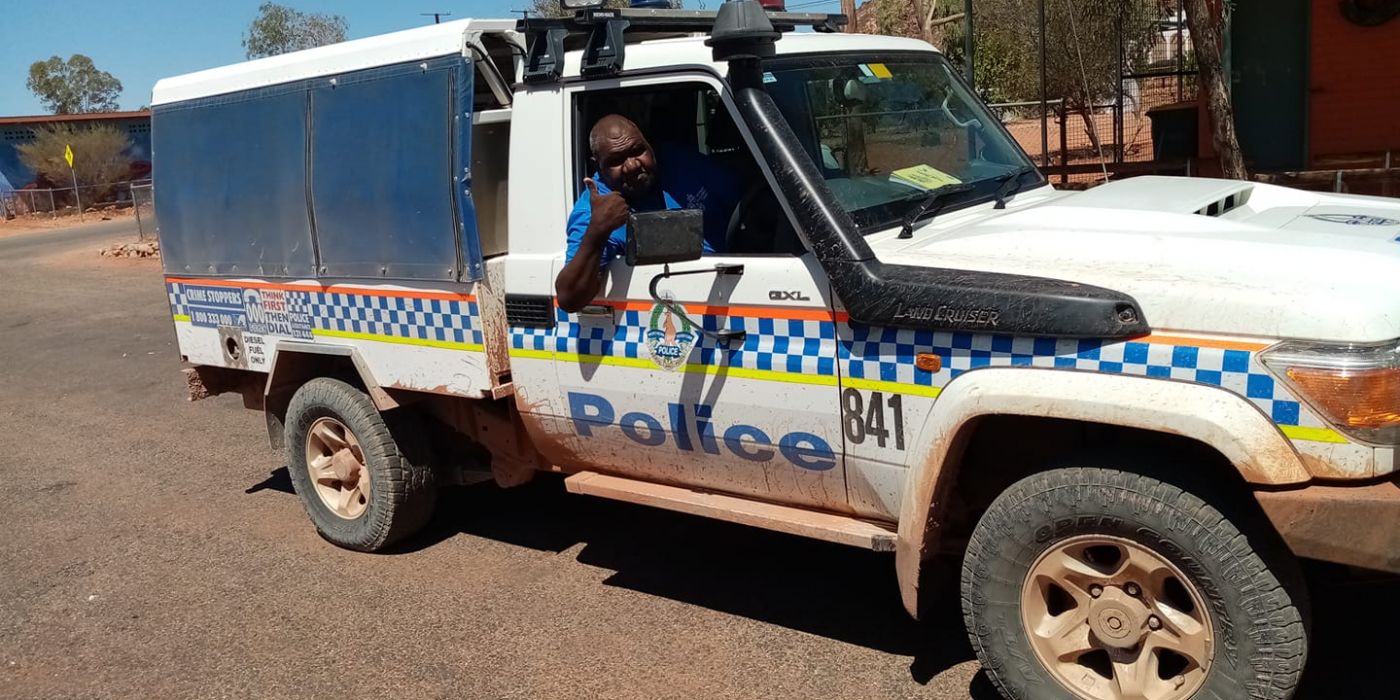Aboriginal Community Liaison Officer, Phillip Alice rides the local Santa Teresa school bus from Monday to Friday, picking up kids and taking them to school.
“We do four rounds of the school route and pick up maybe 60 kids. It’s really good because I did it before, so I talk to the parents and the kids and tell them that school is important, school is very fun and it’s exciting.
“I tell them they gotta go to school and get a good education and they can become a health worker or school teacher or so they can be like me,” he laughs.
“The kids talk to me, they are really excited to see me on the bus and we like having fun and making jokes – it’s good. And sometimes I sing a song to them, I can’t sing but it makes them laugh.”
Standing 6ft tall, the width of a barrel and armed with multiple languages and 100 watt smile, the Aboriginal Liaison Officer was born and raised in Santa Teresa and worked as the local Aboriginal Community Police Officer for 25 years before he retired.
Phillip Alice has recently been re-employed by NT Police as an Aboriginal Liaison officer for Santa Teresa and surrounding communities and urban areas including Alice Springs.
“It’s good to get back to working for Police in the role of Aboriginal Liaison Officer across Central Austral as I have a lot of local knowledge and can understand and speak the languages in the remote communities.”
“It’s very exciting but there’s a different kind of pressure, you got to work Monday to Friday but kids are still come to my house and tell me people are fighting on weekends.
Since starting in the role, ALO Alice has noticed big changes in the community, including the amount of alcohol and public drunkenness in Santa Teresa.
“There was a lot of alcohol before and people were drinking freely in public and bringing alcohol into restricted areas, but I just said to them if you know who is bringing grog in tell them to stop. Santa Teresa is an Alcohol Protected Area so I’ve been reminding people that they can’t drink here.”
“We’ve also been working with the Aboriginal Community based organisation called Triple A, which works to provide meals and drinks to family who have chosen to remain sober and be the designated sober driver for people who chose to drink outside the dry communities.”
“We’re seeing change. I used to see people coming in drunk to the community store on a Saturday, but now I am not seeing any drunk drivers or people being silly drunk. Everyone can notice it and they see the changes, which makes me really happy.”
With the immediate ripple of positive change an Aboriginal Liaison Officer is having in one community, ALO Alice said more would benefit the region.
“Having a local person on as an ALO is good because he or she is the eyes and the ears for the police.
“I think there should be more ALOs in the community both men and women. The kids know if they’re being cheeky we can take them to their parents and tell the parents that they’ve been doing wrong things and they tell them off.
“I enjoy what I do and that’s why I come back to the police force because I want to serve my community.”







